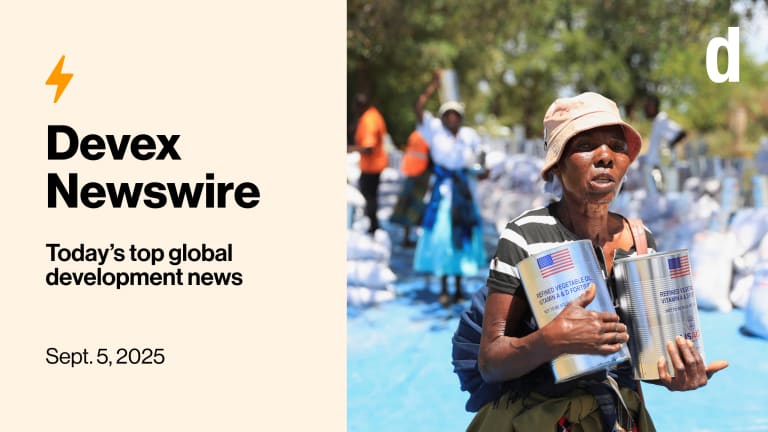
Improving access to education, particularly of women and girls, is essential to economic growth and development, the U.S. Agency for International Development and United Nations say.
USAID is pioneering new tools to improve access to basic education in the developing world, with emphasis on women and girls and rural residents, said Rajiv Shah, the agency’s administrator.
“There are many benefits to a more literate society and this is especially true for women and girls. In most of the developing world, women are directly responsible for the welfare of their families - tending to basic family needs, working on farms and contributing to the family income, managing domestic resources and at least some of the household finances. What resources women have at their disposal and how they use them has a direct impact on household income, health, education, and nutritional outcomes,” Shah said in statement on Sept. 8, which was designated as International Literacy Day
USAID is awarding up to USD1.1 million to 11 new partnerships between 22 universities in Africa and the U.S. These partnerships aim to help build the capacity of African partner universities in tackling issues relating to food security and agriculture, solar energy, health care, education, and water.
The U.N., meanwhile, is calling for more funding and advocacy to boost literacy rates among women.
“Literate women are more likely to send their children, especially their girls, to school,” U.N. chief Ban Ki-moon said in a Sept. 8 statement. “By acquiring literacy, women become more economically self-reliant and more actively engaged in their country’s social, political and cultural life. All evidence shows that investment in literacy for women yields high development dividends.”
UNESCO is issuing its annual awards for grass-roots projects on women’s empowerment through literacy in Cape Verde, Colombia, Egypt, Germany, Malawi and Nepal. It is due to launch the Knowledge and Innovations Network for Literacy, which will allow for online sharing of knowledge on literacy topics. The agency is likewise partnering with the U.N. Human Settlements Program to help the Afghan government reach its target of halving illiteracy by 2015.
UNICEF, meanwhile, is helping to distribute school supplies in 5,575 primary schools in Zimbabwe. The project is funded through the Educational Transition Fund, which was launched last year. ETF’s next phase will target the provision of teacher guides and textbooks for marginalized indigenous languages and Braille texts in Zimbabwe.








